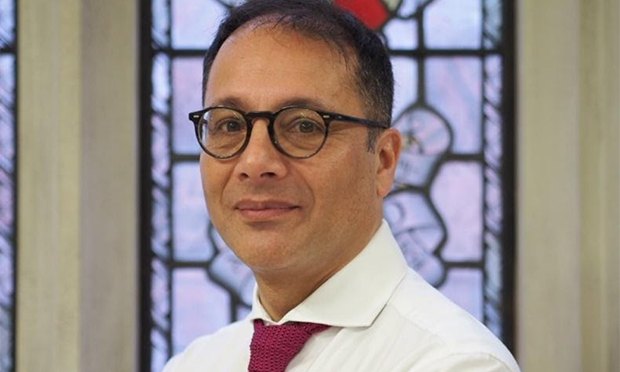‘Cost-of-living crisis will mean tough decisions on budgets,’ warns Hackney’s chief executive

Hackney Council’s chief executive Mark Carroll. Photograph: Hackney Council
Hackney’s chief executive has warned councillors that the cost-of-living crisis will mean “tough decisions” being made on the council’s finances.
Mark Carroll said: “We will bring forward things that inevitably that we don’t want to do.”
His warning comes as council officers work on next year’s budget.
Their financial plans will be under the spotlight at budget scrutiny meetings in October and November.
Head of finance Ian Williams said the Town Hall is currently facing a £25m gap next year, along with uncertainty over government funding.
He told the council’s scrutiny panel this was the most “challenging” financial situation he has seen for local government for many years.
Across London, councils are predicting a need for £2.5bn in savings over the coming four years.
Carroll took over the top job last October and said his priorities include the climate emergency, anti-racism, fostering a ” visible pride and passion” in the council and ensuring it is an “inclusive and open organisation”.
At his first annual appearance to answer questions from the scrutiny panel, he said he wanted “ambitious outcomes” and that there was a danger in focusing on individual services.
He said the council’s leadership team is “one of the most diverse in the country”.
Carroll joined Hackney from Essex county council, where he was director of public health.
His central government experience includes working on the strategy on race equality following the Stephen Lawrence inquiry.
He has since worked with the local community following the revelation that a Hackney schoolgirl, known as Child Q, was strip-searched by police at school.
This involved holding organisations to account, looking at education and the police action plan, challenging discrimination and “building confidence within our communities”, he explained.
When he took over, he said the backlog in housing repairs “jumped out” at him, as well as the council needing to “get a grip on” children’s services after a 2019 Ofsted inspection said it required improvement.
Carroll said councillors had highlighted priorities of housing repairs and the impact of the 2020 cyber attack, which paralysed services such as benefits and planning.
Whilst services are getting back to normal, just four per cent of residents told the council’s attitudes survey that the cyber attack bothered them.
Carroll thinks it had a significant effect on some people.
He said that 65 per cent of respondents reported being satisifed with the council, compared with 68 per cent in 2018.
“That’s quite an extraordinary holding-up,” he added.
Trust in the council was 67 per cent, compared with 48 per cent across the Local Government Association.
However, Black and global majority residents, social renters, and those in older age groups were less satisfied.
“That gives us a real focus of where we need to focus,” Carroll said.
The biggest bugbear for residents was low traffic neighbourhoods, brought in to reduce traffic and emissions on the roads, with communication with the council coming second.

I can see how the ‘cost-of-living crisis’ affects the council’s less well paid staff. The council’s budget, though? It sounds as if Hackney Council are planning to cut services , not spend more on those affecting the borough’s most vulnerable residents.